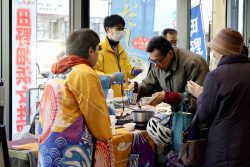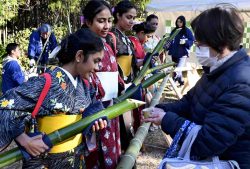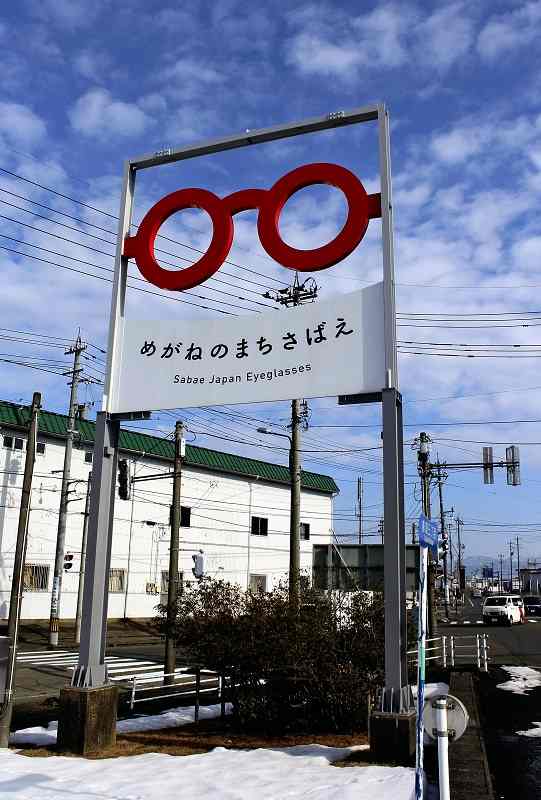
A billboard with red glasses is seen in Sabae, promoting the “city of glasses.”
18:23 JST, March 13, 2021
SABAE, Fukui — When university students called out, “Don’t touch your eyes with dirty hands” and “Eat carrots since they are good for your eyes,” about 50 children aged 3 to 5 responded with a cheerful “OK!”
An online seminar was held at Shinmei Kindergarten in Sabae, Fukui Prefecture, on Feb. 15, as students from the Niigata University of Health and Welfare talked to children about how to protect their eyesight.
The seminar is part of a city government project, in partnership with the university, that began in 2019. The goal is to strengthen children’s vision.
“Sabae is known for its glasses,” said Toyoko Hasegawa, the head of the kindergarten. “That being said, if the children can be educated early on to take care of their eyes and then end up not needing glasses, that would be best.”
The children also played a card game said to have a positive effect on children’s eyes. The cards depict the city’s mascot character Sabanyan with slightly different facial expressions, such as happy or angry. The object of the game is to match up identical cards. The city government said it is a good way to train the children to carefully distinguish among the facial expressions of the characters.
Eyeglasses manufacturers in the city produce light and strong titanium frames for spectacles, which are highly regarded in the world market, and the city government has long promoted itself as a glasses town.
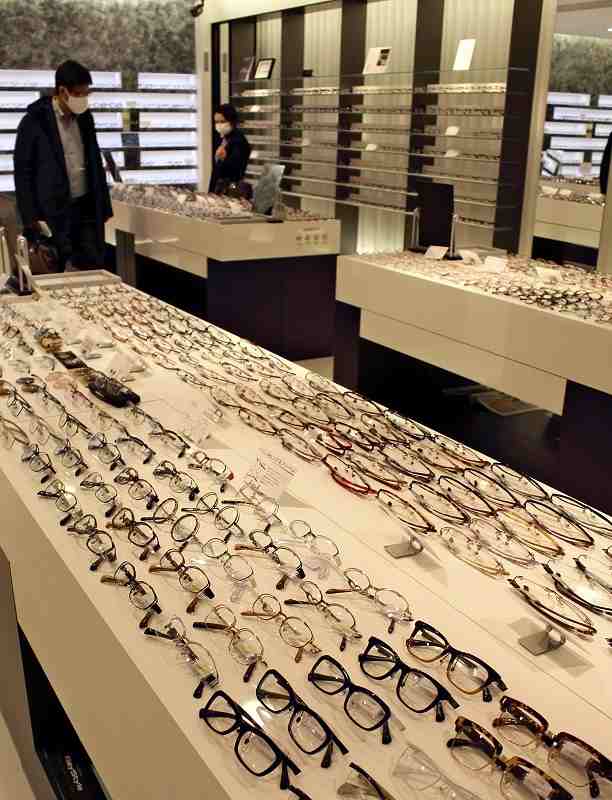
Many spectacles, including the latest models, are on display and for sale at Megane Kaikan, a facility that houses an eyeglasses shop and an eyeglasses museum, in Sabae.
The city government hopes the project will have a positive impact, instead.
“This will all lead to the development of new lenses and new industrial fields in the future,” said a city official.
Poor vision among children has become a serious problem in Japan. About one in four kindergarteners, one in three elementary school students, and one in two junior high school students have poor vision, according to the 2019 School Health Statistics Research conducted by the Education, Culture, Sports, Science and Technology Ministry.
If a vision test catches a problem early on in a child, then wearing glasses may help lead the child to eventually not need glasses. Improving vision tests will also help enhance research to determine what effect the use of smartphones and tablets has on the eyes, according to the city government.
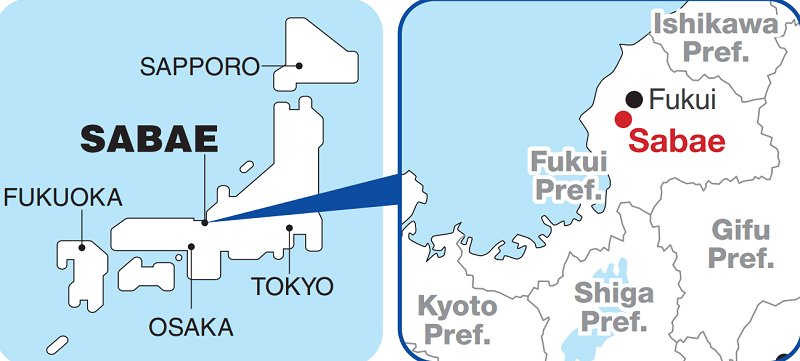
Town of glasses
The origin of eyeglasses frame production in Fukui Prefecture dates back to 1905, when Gozaemon Masunaga (1871-1938) began making them at the base of Mt. Monju, located between what is now Fukui City and Sabae. Masunaga, who was born into a wealthy farming family, brought craftsmen to the spot from Osaka. The division of labor among craftsmen progressed, and the business became a source of income to support the snowy farming village. The wealth spread to Sabae as well. In the early 1980s, companies in Sabae succeeded in mass-producing titanium eyeglasses frames for the first time in the world. Fukui Prefecture ranks first in Japan in eyeglasses frames shipped, accounting for 93% of the nation’s total as of 2017, and Sabae accounts for about 80% of this. About 450 eyeglasses-related businesses are located in the city.
Related Tags
Top Articles in Features
-

Sapporo Snow Festival Opens with 210 Snow and Ice Sculptures at 3 Venues in Hokkaido, Features Huge Dogu
-

Tokyo’s New Record-Breaking Fountain Named ‘Tokyo Aqua Symphony’
-

Tourists Flock to Ice Dome Lodge at Resort in Hokkaido, Japan; Facility Invites Visitors to Sleep on Beds Made of Ice
-

High-Hydration Bread on the Rise, Seeing Increase in Specialty Shops, Recipe Searches
-

Heirs to Kyoto Talent: Craftsman Works to Keep Tradition of ‘Kinran’ Brocade Alive Through Initiatives, New Creations
JN ACCESS RANKING
-

Japan PM Takaichi’s Cabinet Resigns en Masse
-

Japan Institute to Use Domestic Commercial Optical Lattice Clock to Set Japan Standard Time
-

Israeli Ambassador to Japan Speaks about Japan’s Role in the Reconstruction of Gaza
-

Man Infected with Measles Reportedly Dined at Restaurant in Tokyo Station
-

Man Infected with Measles May Have Come in Contact with Many People in Tokyo, Went to Store, Restaurant Around When Symptoms Emerged


